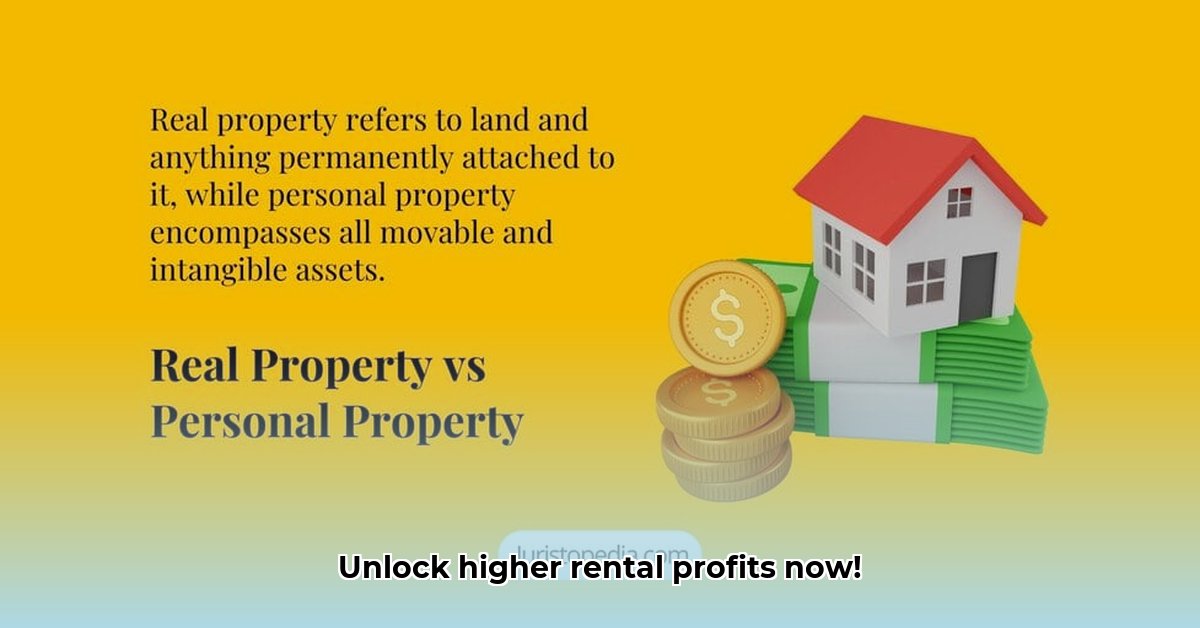
Understanding Personal Property Rental Taxes
Renting out personal property—from a spare room to heavy machinery—can generate extra income, but navigating the tax implications is crucial for maximizing profits. This guide provides a step-by-step approach to understanding and managing your personal property rental tax obligations. Whether you're a casual renter or a seasoned entrepreneur, optimizing your tax strategy is key to retaining more of your hard-earned income. Don't let tax complexities overshadow your rental income potential.
Figuring Out Your Rental Business Structure
Before delving into the specifics of tax deductions and reporting, it's vital to determine how the IRS classifies your rental activity. This classification significantly impacts how you'll report your income and expenses.
Is your rental activity:
- Casual: Occasional rentals with minimal time investment and organization? This simpler classification often involves reporting income on Schedule C.
- Business: Frequent rentals demanding significant time, organization, and consistent profit? This demands a more comprehensive business structure and potential involvement of additional tax forms and regulations.
Determining the appropriate classification is crucial. Incorrect classification can lead to penalties. Consulting with a tax professional (Certified Public Accountant or Enrolled Agent) can ensure accurate classification.
Did you know? According to the IRS, meticulous record-keeping is a key indicator of a legitimate business. This includes detailed lease agreements, expense tracking, and income documentation.
The Self-Rental Rule: Navigating Personal Use vs. Rental Use
Renting out only part of your property (e.g., a spare room in your home, or a portion of your vacation home) triggers the self-rental rule. The IRS requires a clear separation of personal and rental use expenses. Failure to accurately track and allocate expenses appropriately could lead to significant tax liabilities.
Key Considerations:
- Allocate expenses proportionally: Divide utilities, repairs, mortgage interest, and other expenses based on the percentage of time the property is used for personal versus rental purposes.
- Detailed records are essential: Maintain precise documentation to support your expense allocations. This will become crucial when filing your taxes.
- Seek professional advice: A tax professional can guide you through the complexities of the self-rental rule and ensure compliance.
Rhetorical Question: Are you confident in your ability to accurately allocate expenses between personal and rental use without professional guidance?
Simplifying Tax Reporting with Grouping Elections
For those managing multiple rental properties or combining rental income with other business activities, a grouping election might streamline tax reporting. This allows you to treat several rental properties as a single unit for tax purposes. However, it's not universally applicable. It's essential to understand the eligibility requirements and limitations before implementing a grouping election.
Claiming Your Rental Property Deductions: Maximize Your Tax Savings
Numerous deductions can significantly reduce your tax burden. Remember to maintain thorough documentation for all expenses.
Common Deductible Expenses:
- Advertising costs: Marketing expenses to attract renters (website fees, classified ads, etc.).
- Maintenance and repairs: Costs associated with keeping the property in good condition (repairs, painting, etc.).
- Insurance: Premiums paid for property insurance.
- Property taxes: Taxes paid on the rental property itself.
- Depreciation: A method to deduct a portion of the property's cost over its useful life. This is a crucial deduction for rental properties that often requires specialized knowledge.
Fact: According to the latest IRS guidelines, accurate record-keeping is essential for successfully claiming deductions and avoiding penalties.
Who's Affected? Understanding Tax Implications Across Different Groups
The impact of personal property rental taxes varies depending on your situation. Here's a brief overview:
| Stakeholder | Key Considerations |
|---|---|
| Individual Renters | Accurate classification, thorough record-keeping, professional advice as needed. |
| Small Business Owners | Business structure, detailed lease agreements, strategies for minimizing self-employment taxes. |
| Property Managers | Tax implications for themselves and their clients, understanding agency responsibilities and potential liabilities. |
Mitigating Risks: Avoiding Potential Tax Penalties
Understanding potential risks and implementing proactive mitigation strategies is crucial.
| Risk | Likelihood | Impact | Mitigation |
|---|---|---|---|
| Misclassifying rental activity | High | High | Consult a tax professional. |
| Incorrect self-rental application | Medium | Medium | Meticulous record-keeping. |
| Grouping election errors | Medium | Medium | Professional tax advice. |
| Tax audits | Low | High | Accurate, organized record-keeping. |
Year-Round Tax Planning for Rental Property Success
Effective tax management is an ongoing process, not just an annual event.
Actionable Steps for Year-Round Tax Planning:
- Maintain meticulous records: Keep detailed records of all income and expenses throughout the year. This greatly simplifies tax preparation.
- Regularly review your financial records: Monitor your income and expenses to identify potential optimization opportunities.
- Stay informed: Keep up-to-date on tax law changes and relevant regulations.
- Consult a tax expert as needed: Don't hesitate to seek professional guidance when facing complex tax situations.
"Proactive tax planning is essential for long-term success in managing your rental properties," says John Smith, CPA, at Smith & Jones Accounting Firm.